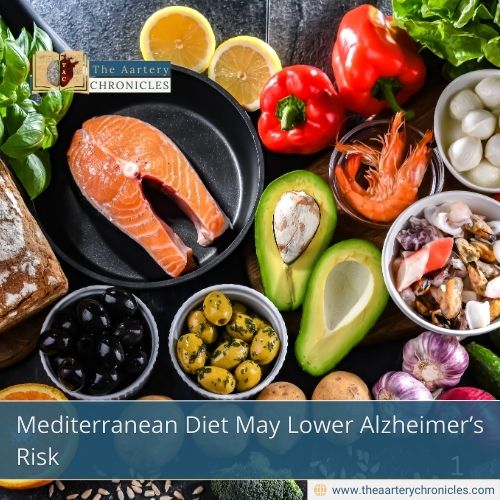

Can Diet Offset Alzheimer’s Genes? Here’s What We Know
Summary: Eating a Mediterranean-style diet might actually help keep your memory sharp and reduce the chances of developing dementia, even if you have genes like APOE4 linked to Alzheimer’s. Recent studies are showing that what we eat can influence how our body’s metabolism works in ways that support brain health.
Can what you eat actually help fight Alzheimer’s?
It turns out that sticking to a Mediterranean-style diet might really lower your chances of getting dementia, even if you’re genetically more prone to Alzheimer’s.
That’s based on new research published in Nature Medicine, which shows that people with two copies of the APOE4 gene, the biggest genetic risk factor for Alzheimer’s, got the biggest benefit from this kind of eating plan.
Why Researchers Focused on the Mediterranean Diet
“The Mediterranean diet is the only dietary pattern that has been causally linked to cognitive benefits in a randomised trial,” explained Yuxi Liu, PhD, first author and research fellow at Brigham and Women’s Hospital and Harvard T.H. Chan School of Public Health.
The team wanted to know:
- Does this benefit vary across different genetic backgrounds?
- How does diet affect blood metabolites linked to brain health?
Understanding the Genetic Risk
Alzheimer’s disease has quite a bit to do with genetics; around 80% heritability is suspected. The APOE gene, especially the APOE4 version, plays a major role:
- Having one APOE4 copy means you’re about 3 to 4 times more likely to develop Alzheimer’s
- Having two copies (homozygous) can bump up that risk to as much as 12 times higher
Making smart dietary choices really matters for individuals with APOE4.
Inside the Study: Who and How
The researchers looked at:
- 4,215 women from the Nurses’ Health Study (1989–2023)
- 1,490 men from the Health Professionals Follow-Up Study (1993–2023)
They examined long-term eating habits using food frequency questionnaires and also assessed blood metabolites and genetic risk factors. Over 1,000 women took part in cognitive tests to see how their brains perform.
Key Findings: Diet May Offset Genes
Participants who adhered more closely to a Mediterranean diet showed:
- Lower dementia risk
- Slower cognitive decline
The strongest benefit appeared in those with two APOE4 copies, the group most vulnerable to Alzheimer’s.
“These findings suggest that dietary strategies, specifically the Mediterranean diet, could help reduce cognitive decline and dementia by influencing key metabolic pathways,” said Liu.
What makes the Mediterranean Diet so effective?
Basically, it’s all about focusing on lots of fruits, vegetables, and whole grains. People also love using olive oil and nuts, and include plenty of fish and other lean proteins in their meals. Plus, they keep processed foods to a minimum. Because it’s packed with nutrients, this way of eating might help cut down on
- Inflammation
- Boost your metabolism
- Keep your brain healthy
Limitations and Future Research
The study primarily involved educated participants of European ancestry, indicating a need for more diverse research.
Also, while genetics and metabolomics show promise, they are not yet part of clinical risk prediction models.
“In future research, we hope to explore whether targeting specific metabolites through diet or other interventions could offer a personalized approach to lowering dementia risk,” Liu added.
Takeaway
Even if you’re genetically more prone to Alzheimer’s, what you choose to eat really makes a difference. Following a Mediterranean-style diet might help keep your memory sharp, boost your brainpower, and even lower your chances of getting dementia, so it’s a great idea to start now.

Dane
I am an MBBS graduate and a dedicated medical writer with a strong passion for deep research and psychology. I enjoy breaking down complex medical topics into engaging, easy-to-understand content, aiming to educate and inspire readers by exploring the fascinating connection between health, science, and the human mind.








